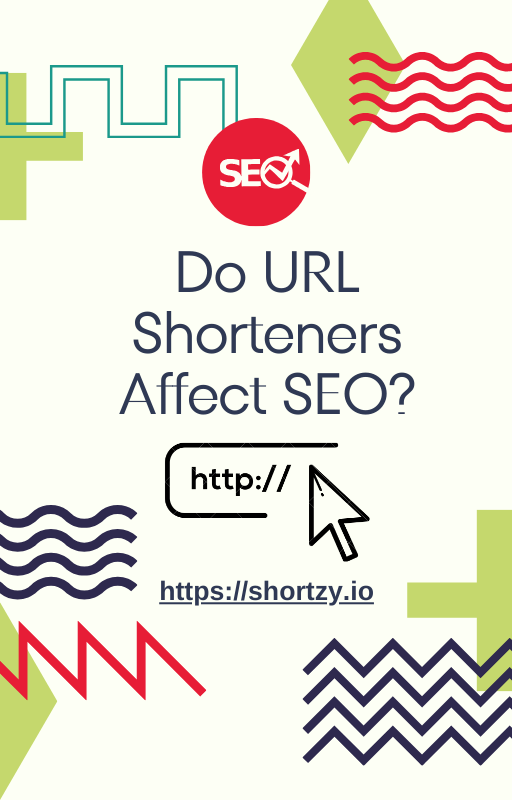
Do URL Shortens Affect SEO?
Shortened URLs offer a double-edged sword for SEO. While they boost click-through rates on social media thanks to their concise format and analytics tools, they can also be tricky partners. Detractors point to slight "link juice" loss at redirects, potential spam associations, and user trust concerns from hidden destinations. So, use them strategically! Choose reputable shorteners, keep redirects minimal, and infuse keywords for search engine clarity. Track performance and analyze their impact. Ultimately, use them where conciseness reigns, but prioritize SEO-friendly practices for best results.
The Hidden Benefits of A Short URL for Google SEO
What are URL Shortens?
URL shortens perform a seemingly simple yet powerful function – they metamorphose lengthy and unwieldy URLs into concise links, enhancing user-friendliness. Widely adopted services like Bitly, Tiny URL, and Ow.ly have streamlined the process, enabling users to share and access links with greater efficiency.
The Impact on SEO
The relationship between URL shorteners and SEO is intricate. To comprehend their influence, it's imperative to delve into how search engines interpret shortened URLs and the role of link equity in the complex world of SEO.
How Search Engines Interpret Shortened URLs
Search engines, with Google at the forefront, approach shortened URLs differently than their traditional counterparts. Understanding this nuance is pivotal in deciphering the potential ramifications on a website's search engine rankings.
Link Equity and its Role in SEO
The distribution of link equity emerges as a critical facet of SEO. This section will explore how URL shortens may influence link equity and, consequently, the visibility of a website in search results.
Benefits of URL Shortens
URL shortens offer more than brevity; they bring forth positive aspects that contribute to a well-rounded online experience. Let's explore these advantages, focusing on improved user experience and the valuable tracking and analytics capabilities they provide.
Improved User Experience
Shortened URLs contribute to an enhanced user experience by presenting easily shareable and memorable links. This fosters a smoother navigation process for both content creators and consumers alike.
Tracking and Analytics
Among the key advantages of URL shortens is the ability to track link performance. This section will delve into how analytics, provided by these services, can inform strategic decision-making for content creators and marketers.
Drawbacks of URL Shortens
Despite their numerous benefits, URL shortens come with potential drawbacks that merit acknowledgment. This section will shine a light on the risks of abuse and the challenges associated with loss of control and link rot.
Potential for Abuse
Shortened URLs may be susceptible to misuse, posing potential implications for both users and the linked content. Understanding these risks is vital for mitigating potential harm.
Loss of Control and Link Rot
The inherent nature of URL shortens raises concerns about control and longevity. We'll address how the loss of control over links and the concept of link rot can impact SEO efforts and website sustainability.
Common Misconceptions about URL Shortens
Dispelling myths is essential for a clear understanding of the topic. This section will address common misconceptions, particularly those related to the perceived impact on SEO and security concerns.
Myth busting the Impact on SEO
Widespread beliefs about URL shortens negatively affecting SEO will be debunked. We'll separate fact from fiction and provide clarity on their actual influence.
Addressing Security Concerns
Security is a paramount concern in the digital realm. We'll explore the misconceptions surrounding URL shortens and security, offering insights into their actual risks and benefits.
Best Practices for Using URL Shortens
To maximize the benefits of URL shortens, users must adopt best practices. This section will provide guidance on selecting a reliable service and customizing short URLs for brand consistency.
Choosing a Reliable Service
Not all URL shortening services are created equal. This section will outline criteria for selecting a trustworthy service that aligns with your goals.
Customizing Short URLs for Brand Consistency
Maintaining brand consistency is crucial in online interactions. We'll discuss how customization of short URLs contributes to a cohesive brand identity.
How to Monitor and Analyze Short URL Performance
Analytics play a vital role in evaluating the success of URL shortening strategies. This section will guide users on utilizing analytics tools and making data-driven adjustments.
Utilizing Analytics Tools
We'll explore popular analytics tools and how they can provide valuable insights into short URL performance, empowering users to refine their strategies.
Adjusting Strategies Based on Data
Understanding analytics data allows for strategic refinement. We'll discuss how to adapt URL shortening strategies based on the analysis of key metrics, ensuring ongoing optimization.
Case Studies
Real-world examples can provide invaluable lessons. This section will present both successful URL shortening strategies and the lessons learned from unsuccessful attempts.
Examples of Successful URL Shortening Strategies
We'll showcase instances where URL shortens have been effectively utilized, leading to improved engagement and visibility. Extracting lessons from these successes can guide future endeavors.
Lessons Learned from Unsuccessful Attempts
Learning from failures is equally important. We'll examine cases where URL shortening strategies fell short, extracting valuable insights for future endeavors and fostering a culture of continuous improvement.
SEO-Friendly Alternatives to URL Shortens
For those wary of URL shortens, alternative strategies exist. This section will explore SEO-friendly options, such as implementing permanent redirects and using descriptive and concise URLs.
Implementing Permanent Redirects
Permanent redirects offer a different approach to achieving the goals of URL shortening while maintaining the SEO integrity of original URLs. We'll delve into the benefits and considerations of this alternative.
Using Descriptive and Concise URLs
Crafting descriptive and concise URLs from the outset can eliminate the need for URL shortens. We'll discuss the advantages of this approach in maintaining SEO friendliness.
Emerging Technologies and Their Impact
Advancements in technology may reshape how URL shortens function. We'll explore potential innovations and their implications for SEO and online visibility.
Predictions for the Evolution of URL Shortens
Based on current trends, we'll make informed predictions about how URL shortens may evolve in response to changing SEO dynamics. Understanding these potential shifts can help marketers stay ahead of the curve.
Conclusion
Summarizing the key points discussed throughout the blog, we'll emphasize the importance of a balanced approach to URL shorteners in the context of SEO. Striking the right balance between brevity and SEO optimization is crucial for a successful online presence.
FAQs
Do URL shortens impact my website's SEO negatively?
Despite common misconceptions, URL shortens do not inherently harm SEO. However, misuse can have adverse effects.
Are all URL shortening services equally reliable?
No, the reliability of URL shortening services varies. Choose a service with a good track record to ensure consistent performance.
How can I track the performance of shortened URLs?
Utilize analytics tools provided by the URL shortening service to monitor key metrics and make data-driven decisions.
What alternatives exist for those concerned about URL shortens?
Implementing permanent redirects and using descriptive, concise URLs are SEO-friendly alternatives to traditional URL shortens.
What should be my primary consideration when customizing short URLs for brand consistency?
Ensure that the customized short URLs reflect your brand identity and are memorable for users.
.png)

